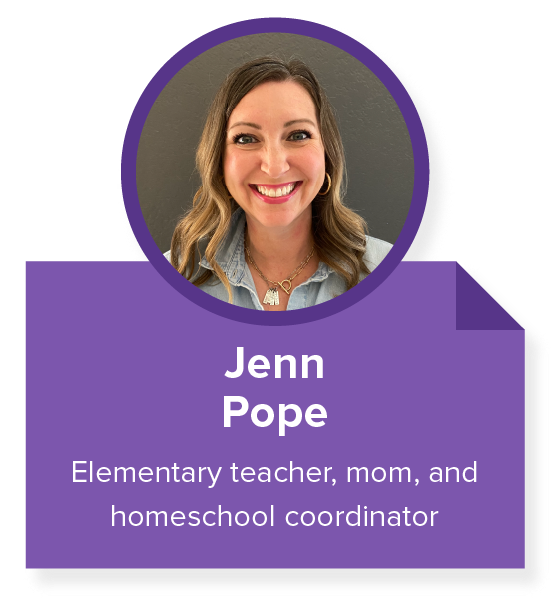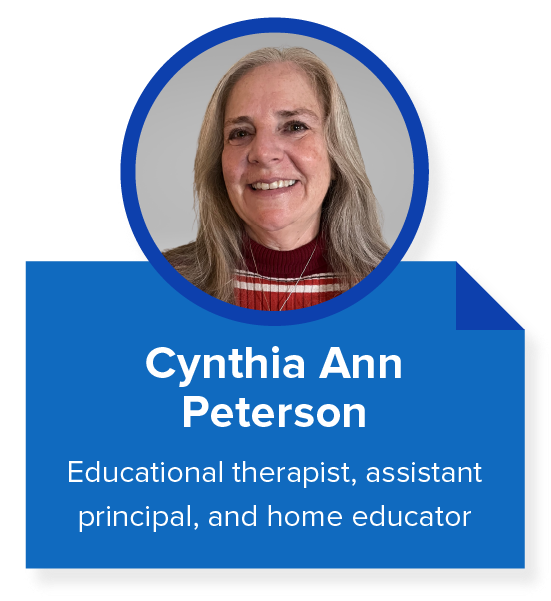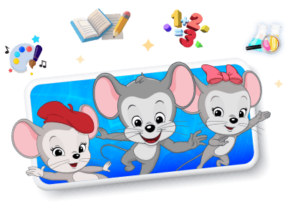
Are Homeschool and Virtual School the Same Thing?
Learn the difference between homeschooling and virtual school with help from fellow home educators.
Education has evolved significantly in recent years, with an increasing number of families turning to alternative learning options, such as home education and virtual school. While both involve learning outside of a traditional brick-and-mortar school setting, there are distinct differences between homeschooling and virtual schooling. However, elements of virtual learning can play a positive role in homeschooling.

What is Virtual School?
Virtual school, also known as online school or remote learning, is a form of education that provides all instruction online. Virtual school offers a wide range of courses and subjects, from core academics to specialized electives, that are all delivered through digital platforms.
Students typically access lessons, assignments, and resources online, communicate with teachers and classmates through virtual classrooms, and submit their school work electronically. Students learn from the comforts of their own home and can fine tune their learning environment to best suit their needs.
Virtual school does not require parent involvement, as all learning, planning, grading, and assessments are directed by a teacher. Many consider virtual school to follow the same parameters as public school, with instructional hours and schedules often mimicking traditional school hours.
Key Differences Between Virtual School and Homeschool
While homeschooling families often learn at home and may use online curriculum materials, homeschooling and virtual school are quite different, with the biggest contrast found in who is leading the child’s education. Virtual school is led by a teacher with little parent involvement. Homeschool is directed by a parent or guardian with little involvement from professional teachers.
Home educators are solely responsible for lesson planning, instruction, progress tracking, and all other elements of their child’s education. They may choose to hire tutors to teach certain subjects, use purchased curriculum materials to help facilitate instruction, or even sign a child up for virtual instruction in specific courses.
Home educators can change their approach to teaching anytime to suit their child’s needs. Virtual school students must adhere to the educational practices of their school. Homeschool families also have flexibility in their school schedule and incorporate learning into the day wherever it fits, while virtual students must follow the schedule outlined by their school.
Homeschool families also have to comply with their state’s legal requirements for home education, which vary from state to state. Families using virtual school don’t have to worry about meeting certain educational criteria, as that responsibility falls on the virtual school.
Homeschool and virtual school each offer unique educational experiences. Homeschooling provides a greater level of flexibility and customization but requires parents to be heavily involved in all aspects of instruction. Virtual school offers the convenience of certified teachers handling instruction and requires little parental involvement but students need to follow the schedules and curriculum chosen by the school.
Ultimately, the decision between homeschooling and virtual school depends on your family’s specific needs, resources, and lifestyle. It’s important to consider factors like your availability as an educator and your child’s level of independence when considering homeschool and virtual school. Regardless of the choice you make, the most crucial aspect is creating an environment where your child feels supported, motivated, and engaged in their educational journey.
Homeschooling Vs. Virtual School
| Homeschooling | Virtual School | |
| Curriculum and Instruction | Allows for complete flexibility in curriculum choices. Parents or guardians select materials and resources that align with their child’s interests and educational goals and tailor instruction to meet individual needs and pace. | Typically offers pre-designed curricula that adhere to academic standards. Students engage in online lessons and activities guided by certified teachers via online platforms, including video lectures, interactive assignments, and virtual classrooms. |
| Schedule | Offers the freedom to create a personalized schedule and allows for individualized attention and exploration. Families can determine the best daily routine, incorporating breaks, field trips, and extracurricular activities as desired. | Often follows a structured schedule that mimics traditional school hours. Students have set times for attending live classes, completing assignments, and participating in virtual discussions. |
| Learning Environment | Occurs within the home or any chosen learning environment. Families control the space and can create a personalized learning environment that’s designed to meet specific needs, such as minimizing distractions or maximizing hands-on experiences. | Learn from the comfort of home or any location with internet access. Utilize computers or other devices to access learning materials and interact with teachers and peers online. |
| Teacher Support | Parents or guardians are often the primary educators. They select and deliver the curriculum, provide instruction, and assess their child’s progress. Typically fosters strong family relationships and allows support and instruction to be tailored to each child. | Provides students with access to certified teachers who deliver instruction and support academic progress. Teachers offer guidance, answer questions, provide feedback and grades, and facilitate virtual discussions. |
| Social Interaction | Homeschooled students often have siblings and parents to interact with while learning and typically join local sports teams, clubs, and homeschool organizations to engage with other students. | While virtual schooling offers opportunities for online collaboration and interaction, it lacks in-person, face-to-face socialization. Some virtual schools provide virtual clubs and social events to help students connect with their peers. Virtual students can join local clubs and organizations for in-person activities. |
Home Educators Compare Homeschool & Virtual School
One Main Difference
To those without experience in homeschooling or virtual schooling, the two can easily get lumped into the same category. A simple way to identify the difference between homeschool and virtual school is this: virtual school is a traditional education minus the building, whereas homeschool provides families with the freedom to create a much more child-centered, individualized, and hands-on learning plan.
Virtual schooling can be a great option for students that may not thrive inside a school environment and who require a flexible schedule and individual pacing while being taught in a traditional manner. For many homeschooling families, the choice is based not only on having the authority to decide what and how their children learn but also on the relationships and experiences they can provide that would not be possible in a traditional school setting.


Add Digital Learning to Home Education
While virtual school and home school are different, some home educators choose to incorporate digital lessons into their curriculum. For example, my oldest son has done higher-level math classes online because I wasn’t comfortable teaching them. And he’s also taken advantage of online opportunities such as the NASA High School Aerospace Scholars program to learn about space exploration, Earth science, technology, and aeronautics.


Homeschool or School From Home
Homeschooling is about the home educator being in the driver’s seat of the child’s education. You may hire tutors, go to co-ops, or do tons of online classes. But if you are making the decisions about the what, when, where, how, and why of your child’s educational journey, then you are homeschooling.
If, on the other hand, your child is enrolled in an online school that makes the lion’s share of decisions about what is taught, scheduled, etc …, then that is technically not homeschooling. Your child is attending school from home.


Create a Blended Option
Homeschool involves an adult, often a parent or guardian, who leads, plans, and conducts learning in the home environment. They are responsible for grading lessons and reporting student progress according to their state laws.
Virtual school does not require special legal status if the program being used is an accredited online school. With virtual school, parents and guardians don’t participate in planning, grading, offering additional support, or reporting student progress.
In our current digital age, homeschool families are fortunate to have somewhat of a blended option. This includes control of the environment, resources, lesson planning, and grade reporting while adding rich online resources to help meet academic goals and enhance your child’s learning experiences. Being an established homeschool while integrating online resources for student learning is a wonderful way for your child to meet their academic potential.


Support Your Homeschool with ABCmouse and Adventure Academy
Our digital learning programs are designed by curriculum experts to assist your homeschool and children ages 2 through 13. ABCmouse is a comprehensive online educational platform for children ages 2-8, while Adventure Academy focuses on children ages 8-13. Both programs provide access to lessons on reading, language arts, math, sciences, social studies, and more. Learn more about how each program can enhance your homeschool below.
ABCmouse and Homeschooling
ABCmouse offers over 10,000 learning activities and more than 850 lessons for children, plus a large digital library of books and educational puzzles, songs, activities, and worksheets. The program encourages self-paced learning with motivating rewards and includes progress tracking, which allows home educators to monitor time spent on certain subjects and the number of activities completed.

Then just $14.99/mo. until canceled
As a paid add-on to regular subscriptions, home educators can access the Assessment Center, which allows parents and caregivers to test children on their knowledge, determine successes and struggles, and receive recommended lessons based on assessments.
ABCmouse provides a robust curriculum that can supplement other early learning lessons. It’s trusted resource that’s been downloaded over 10 million times and has a 4.5-star average out of 831.4K ratings.
Adventure Academy and Homeschooling
Adventure Academy combines an interactive world with a curriculum covering reading, language arts, math, science, and social studies. With quests, games, and educational videos and activities, learning becomes an epic journey that motivates kids to explore various topics.
For homeschooling families, Adventure Academy offers an engaging, flexible learning experience that can supplement other educational materials. The program features thousands of activities created by curriculum experts and covers all major academic domains.
Parents and caregivers can choose academic difficulty levels and track each child’s progress, seeing time spent in Adventure Academy, activities completed, and subjects studied.
Adventure Academy emphasizes key topics such as reading comprehension, vocabulary development, mathematical operations, fractions, world geography, American history, physical science, life science, earth science, and scientific inquiry.
For more information, visit AdventureAcademy.com.
More from ABCmouse:
-
Rhyming Schemes for Kids with Examples
Learn what a rhyme scheme is, see examples from poems and nursery rhymes, and discover fun activities to help kids recognize and practice rhyming patterns.
-
Why Rhyming is Important? (Tips for Teaching)
Discover why rhyming is key for early literacy and how it helps kids develop phonemic awareness. Get expert insights and fun activities to teach rhyming.
-
Rhyming Couplets – With Definitions and Examples
Discover rhyming couplets with fun examples, poetry styles, and engaging activities for kids. Explore famous poems and creative ways to learn rhyme!
-
Easy Ways to Teach Blending Words
Teach young readers to blend words with these fun strategies and activities! Discover phonics blending techniques, examples, and hands-on learning tips.
-
Best Rhyming Books for Young Readers
Discover 50 engaging rhyming books for toddlers to second graders! Boost early literacy skills, enjoy playful language, and make reading even more fun.
-
How to Teach One to One Correspondence Made Easy
Discover play-based activities and tips to teach one-to-one correspondence, a key math concept, to preschoolers in fun and engaging ways.







